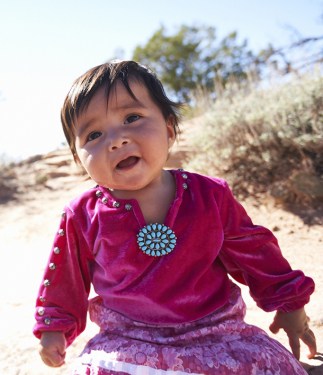
Early childhood caries (tooth decay, cavities) is an urgent public health epidemic facing over half of Native American children. Tooth decay has serious, long-lasting consequences for children, including pain, malnourishment, infection, delayed speech development, low self-esteem, poorer school performance, and poor oral health in adulthood. Oral health interventions must be delivered during infancy because tooth eruption occurs earlier for Native children compared to other ethnicities and one quarter of Native children already have tooth decay by one year of age. A diverse constellation of factors contributes to this epidemic, thereby requiring a multifaceted solution. To this end, the Center has undertaken several projects to understand and combat tooth decay in Native communities.
Oral Health Projects
In collaboration with the Indian Health Service Division of Oral Health, the Center evaluated the impact of alternative dental care models on delivery of care at health facilities serving Native Americans. Future studies are recommended to assess the impact of alternative dental workforce models on oral health outcomes in Native American communities.
The Center piloted an early childhood obesity prevention curriculum delivered at home-visits to mothers of infants aged 3-9 months. The curriculum emphasizes less use of sugar-sweetened beverages during infancy. The pilot also included an innovative oral health component where maternal oral health knowledge, attitudes and behaviors were assessed, and infant oral samples were collected for microbiome analysis.
We are pursuing development of an oral health promotion add-on module for the Family Spirit Home Visiting Program focused on education, hygiene promotion and positive dietary practices. The module, called Family Spirit Smile, will be developed in collaboration with Native communities for delivery by community-based paraprofessionals to mothers of infants. The goal of this project is to change the trajectory of oral health during infancy by preventing tooth decay altogether rather than treating it after it has developed.
The Center intends to expand work in oral health to other areas including promotion of integrated care models and use of novel treatments.